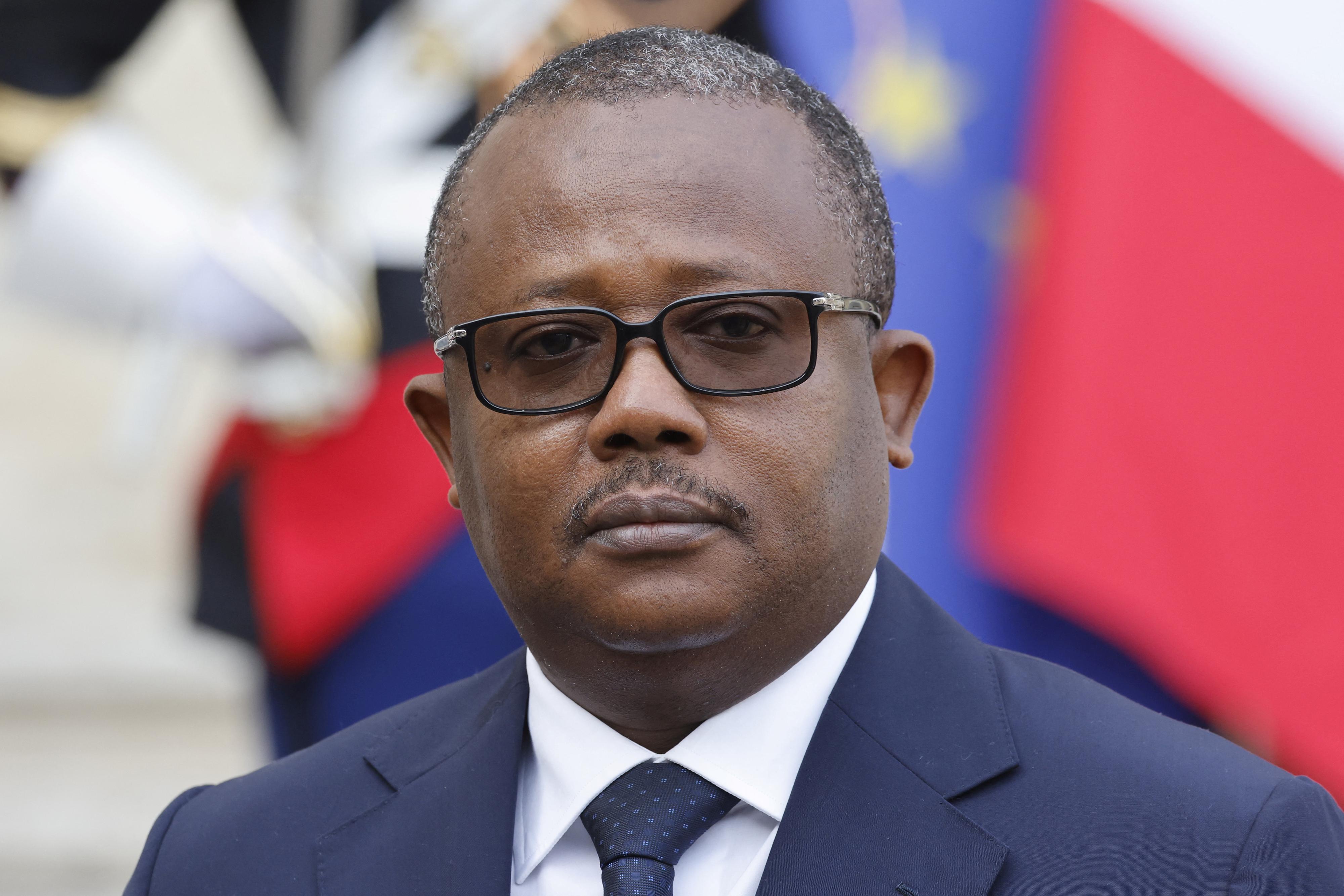A year without parliament in Guinea Bissau

Guinea-Bissau's President Umaro Sissoco Embalo. PHOTO / AFP
What you need to know:
- President Embaló dissolved Parliament for the first time on May 2022, before extending the dissolution on December 4, 2023.
- The Head of State had explained that he decided to dissolve the House to avert civil war, “cooked up in Parliament.”
Guinea-Bissau has marked a year since President Umaro Sissoco Embaló dissolved the National People's Assembly, a commemoration that also means people’s representation in the legislature has been blunted this far.
The country’s Constitution does not allow for the dissolution of the parliament a year after legislative polls.
And for Mr João Rosas, a political commentator in Luanda, Angola, which shares a Lusophony heritage with Guinea Bissau, it means that the Constitution in Guinea-Bissau is suspended and everything depends on the head of the state.
If the constitution were obeyed, he said in an interview, the country would be better off in many ways. In fact, last year was not the first time that the parliament is suspended in Guinea Bissau.
President Embaló dissolved Parliament for the first time on May 2022, before extending the dissolution on December 4, 2023.
Since then, the country has been governed by a presidential-initiated executive, which has been contested by the regime's opponents.
President Embaló had explained that he decided to dissolve the House to avert civil war, “cooked up in Parliament.” He was basically accusing the legislature of fomenting instability.
After dissolving the parliament, President Embaló promised to call elections. A year later, he has not set the date yet.
The dissolution followed victory by a coalition led by the African Party for the Independence of Guinea and Cape Verde (PAIGC), which won the majority in the June 2023 legislative elections.
The Inclusive Alliance Platform (PAI-Terra Ranka) coalition led Domingos Simões Pereira suggested to President Embaló the creation of a ‘transitional government’ from the parliament to overcome the current crisis. He ignored the suggestion.
Mr Pereira, who is also Speaker-elect of the Parliament, said the House continues to be invaded by foreign forces, and all this contributes neither to social peace nor to dialogue with our international partners, with a view to development.
To make matters worse, it is unknown when the legislative elections will take place. Initially, November 24, 2024 was the date set for the polls but it was postponed due to an alleged lack of technical hitch.
Likewise, presidential elections would also have taken place in 2024.
The former army General, came to power on February 27, 2020, following a disputed poll the previous year. His term was to expire after five years.
This means, from February 28, 2025, he would be required to hand over presidency. There is, however, no guarantee of this happening.
Previously, he promised not to run for another term, having survived a coup attempt. Then he turned around to say he would stay on.
According to the acting head of the country’s National Electoral Commission, Mr Npabi Cabi, technical and human resources conditions are already in place, but the organ lacks financial means to carry out its work.
Mr Gueri Gomes Lopes, the National Secretary for Communication of the Guinean League for Human Rights, disagreed with Mr Cabi’s view.
For him, in order for elections to take place in the country there will need to be an independent, responsible and credible Supreme Court of Justice, to be able to rule on certain aspects of the electoral process.
Some Bissau-Guineans, as well as watchdog entities, believe that the fall of parliament has taken the country backwards.
“Did the dissolution of parliament solve anything?” asked Mr João Baldé, a Bissau-Guinean civil servant, who took part in a training on Taxation Models for African Portuguese countries held in Luanda recently.
For him, things have got worse in his country since then and added that there is no parliament and our president has all the powers with him.
Last month, the Committee to Protect Journalists (CPJ) joined two other press freedom organisations in calling on authorities in Guinea-Bissau to accept and implement recommendations to improve its press freedom record.
According to the CPJ, since January 2020, authorities in Guinea-Bissau have undermined press freedom through physical and verbal attacks, arbitrary detention of journalists, and legal harassment.
Since the dissolution of parliament and the installation of a presidential-initiated government in December last year, complaints about human rights violations and the ban on public demonstrations in the country have increased.
Freedom House says that corruption is a major problem that has been exacerbated by organised criminal activity, including drug trafficking.
Last week, the trial of the aircraft that landed September Bissau with 2.6 tons of drug closed arguments.
A witness told the Bissau Regional Court that the drug-laden plane landed without permission because it was running low on fuel. The aircraft was bound for Mali.
The Public Prosecutor's Office is asking a jail term for between 17 and 20 years in prison for the suspects and its ruling is expected to be handed down on December 27.
Since independence from Portugal in 1974, the West African country has experienced four coups and more than a dozen attempted coups while enduring 23 years of direct or military government.
The World Bank says it is one of the world’s poorest and most fragile countries with a population of about 2,1 million.
In April, the US Department of State said in the 2023 Country Reports on Human Rights Practices: Guinea-Bissau that significant human rights issues in the country included torture or cruel, inhuman or degrading treatment by the government.
It also highlighted serious problems with the independence of the judiciary; serious government corruption among others adding that the government did not take credible steps to identify and punish officials who may have committed human rights abuses.



